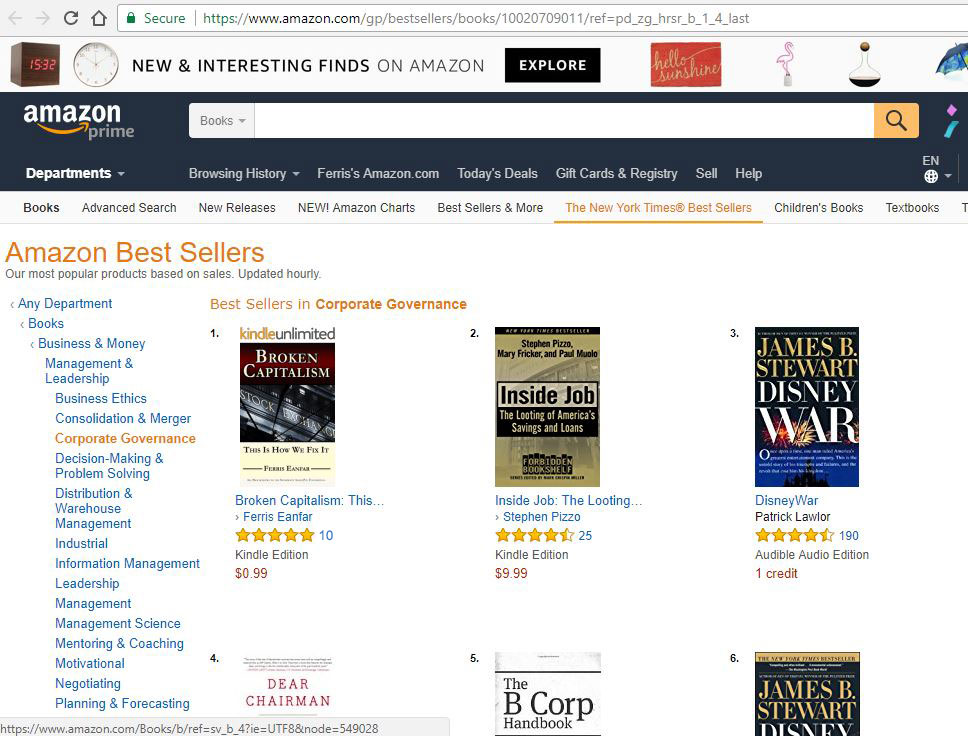Evidence of Climate Change. Human activity does not explain the past 100 million years of global warming and cooling cycles, nor does it necessarily cause super storms and other severe weather. However, there have been numerous historically rapid climate changes occurring, including: rising global sea levels, rising global atmospheric temperatures, rising global ocean temperatures, shrinking glaciers, shrinking Arctic and Antarctic pole ice, increasing average ocean acidification, increasing numbers of hypoxic “dead zones” around industrial seaports, smog, acid rain . . . these are all consequences of human industrial activity. And we know this to be true because the time scale over which all these events have occurred corresponds precisely with the rapid rise of industrialized human activity. (Learn more at NASA.)
Good-Faith Debates Over Nuance Are No Excuse for Paralysis. Like most complex dynamics in the Universe, climate change is not an all-or-nothing debate. There is a continuum of contribution that gives rise to good-faith disagreements about the precise impact of human activity compared to the impact that The Milankovitch Cycle and Earth’s own dynamic biosphere all contribute to Earth’s climate patterns. However, that does not mean humans are not magnifying and accelerating the Milankovitch Cycle by releasing carbon dioxide and methane into the atmosphere, which are proven greenhouses gases that trap heat energy and directly cause premature climate changes. Good-faith disagreements about the precise attribution of each factor associated to climate change is no excuse to ignore the obvious adverse consequences of industrial human activity.
We Don’t Need to Believe in Climate Change to Embrace a Strong National Renewable Energy Policy. We don’t need to believe every theory associated with climate change to understand that certain types of human activity are bad for the present and future of human civilization. Even the most die-hard climate skeptics (assuming they’re not on a fossil fuel company’s payroll) should be able to comprehend the political, economic, energy security, national security, and ecological benefits that would come from eliminating humanity’s addiction to fossil fuels as quickly as possible. Using the Solyndra bankruptcy as an excuse to demonize a strong national renewable energy policy is short-sighted and misguided, particularly since the facts of the Solyndra case are very different than the distorted, fossil fuel-industry subsidized propaganda that has dominated the headlines.
A Nonpartisan Renewable Energy Manhattan Project. If the U.S. Government approached U.S. renewable energy policy the same way it approached its Manhattan Project ($26 billion in 2016 USD), its ongoing nuclear weapons program (nearly $9 trillion in 2016 USD), and its nearly $1 trillion-per-year fossil fuel industry welfare program (including costs of wars to control oil-rich regions, tax breaks, direct subsidies, and inflated energy costs associated to anti-competitive fossil fuel industry practices), there is no question that the U.S. energy portfolio would look very different and the world would be a much safer place today. Unfortunately, numerous interconnected special interest groups have blocked the development, adoption, and support of renewable energy technologies since the beginning of the 20th Century, while they successfully coerced local, state and federal governments to support their own special interests.
We Are All Victims of the Status Quo. The political, economic, and social toxins produced by humanity’s addiction to fossil fuels present a far greater immediate threat to humanity than man-made climate change. Thus, there is no need to differentiate between “climate deniers” and “climate zealots” or to foment partisan, ideological debates over the truth or fiction of various climate change theories—we are all victims of the status quo already. Of course, I am deeply concerned about the long-term ecological future of our planet, but the past, present, and future death-toll and misery that has already been caused directly by humanity’s addiction to fossil fuels certainly far exceeds anything we can expect from man-made climate change any time in the foreseeable future.
The Cost of Fossil Fuel Addiction is Already Catastrophic. Over the past 100 years alone, there have been hundreds of millions of deaths from wars, poisoning, disease and trillions of wasted taxpayer dollars confiscated by national governments to attack and defend despotic, oil-rich nations around the world. Regardless of how strongly we believe in the underlying science of climate change, every human in every industrialized nation should strongly advocate for their governments to allocate funding to each nation’s own renewable energy Manhattan Project immediately. This would foster global energy production competition and liberate all countries from the toxic influence of the fossil fuel industry.
Frequently Asked Question: “Is it Ethical to Make Money from Fossil Fuels While Advocating Against Them?” This depends on how the money is made and what kinds of conflicts of interest may exist. If a person’s only source of income is from a fossil fuel company, then they are not likely able to speak impartially or truthfully about the destructive impact that the industry has had on the environment and its distortive influence over national energy and foreign policies. However, if an independent consultant performs work for a fossil fuel company, has the financial independence to work for other types of companies, and has the political independence to speak the truth about the industry’s real impact on the planet and governmental policies, then I don’t believe there is anything unethical about that. In my case, I am disgusted by the toxic influence of the fossil fuel industry over U.S. economic, energy, and foreign policies, but I also must feed my family. Thus, I have worked on both fossil fuel and renewable energy projects, but I’m not afraid to speak the truth about the strengths and weaknesses of both industries.
About Ferris Eanfar
Ferris Eanfar has over 20 years of experience in technical, financial, media, and government intelligence environments. He has written dozens of articles and several books in the fields of Economics, Crypto-Economics, and International Political Economy, including Broken Capitalism: This Is How We Fix It and GINI: Capitalism, Cryptocurrencies & the Battle for Human Rights and the Global Governance Scorecard. Ferris is a cofounder of the Gini Foundation, which builds unique cryptocurrency systems to protect human rights, among other benefits; and the CEO of the AngelPay Foundation, a nonprofit financial services company with a mission to “return wealth and power to the creators of value.” To learn more about Ferris, please visit the About Ferris page.Visit Ferris on:

 Gini Website Coming Soon. We (
Gini Website Coming Soon. We (
